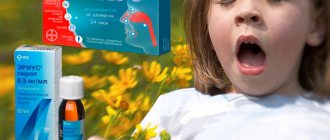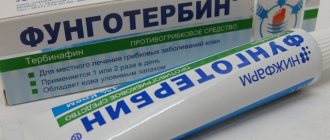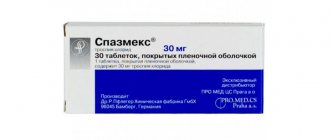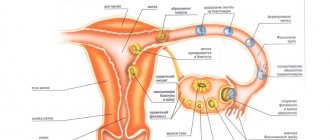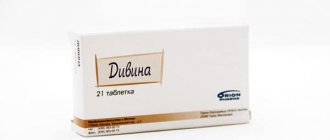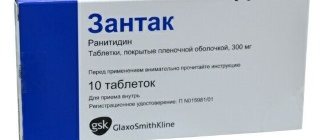Write a review
Reviews: 0
Active ingredients
- Codeine
- Caffeine
- Metamizole sodium
- Phenobarbital
Disease class
- Acute lower respiratory tract respiratory infection, unspecified
- Joint pain
- Myalgia
- Neuralgia and neuritis, unspecified
- Headache
- Dysmenorrhea, unspecified
Clinical and pharmacological group
- Not indicated. See instructions
Pharmacological action
- Muscle relaxant
- Hypnotic
- Antitussive (inhibiting the cough reflex)
- Analgesic (non-narcotic)
Pharmacological group
- NSAIDs - Pyrazolones in combinations
Release form and composition
Dosage form - tablets: from white with a yellow or cream tint to white, round, with a flat surface, with a dividing line and a chamfer (10 pcs. in a blister pack, 1 or 2 packs in a cardboard box; 20 pcs. in polymer bottle, 1 bottle in a cardboard box).
1 tablet contains:
- active ingredients: analgin (metamizole sodium) – 300 mg, caffeine anhydrous – 50 mg, phenobarbital – 10 mg, codeine (codeine monohydrate) – 8 mg;
- auxiliary components: magnesium stearate, potato starch.
Tetralgin oral tablets
Instructions for medical use of the drug
Description of pharmacological action
Metamizole sodium is an analgesic. Caffeine stimulates the psychomotor centers of the brain, has an analeptic effect, enhances the effect of analgesics, eliminates drowsiness and fatigue, and increases physical and mental performance. Codeine is a centrally acting antitussive that reduces the excitability of the cough center. Phenobarbital has a hypnotic-sedative and central muscle relaxant effect.
Indications for use
- headache - toothache; - myalgia; - arthralgia; - neuralgia; - algodismenorrhea; — ARVI (symptomatic therapy).
Release form
pills; packaging contour charunkova 10, cardboard pack 1; pills; packaging contour charunkova 10, cardboard pack 2; pills; polymer bottle (bottle) 20, cardboard pack 1; pills; packaging contour charunkova 10, cardboard pack 1; pills; packaging contour charunkova 10, cardboard pack 2; pills; polymer bottle (bottle) 20, cardboard pack 1; pills; packaging contour charunkova 10, cardboard pack 1; pills; packaging contour charunkova 10, cardboard pack 2; pills; polymer bottle (bottle) 20, cardboard pack 1; Warehouse Tablets 1 tab. codeine 8 mg caffeine 50 mg sodium metamizole 300 mg phenobarbital 10 mg in blister 10 pcs.; in a cardboard pack 1 or 2 packages; or in polymer bottles of 20 pcs.; 1 bottle in a cardboard pack.
Pharmacodynamics
Metamizole sodium is an analgesic drug. Caffeine stimulates the psychomotor centers of the brain, produces an analeptic effect, enhances the effect of analgesics, reduces drowsiness and sleepiness, and promotes physical and mental performance. Codeine is an anti-cough agent of the central action, changing the restlessness of the cough center. Phenobarbital exhibits hypnotic-sedative and central muscle relaxant effects.
Use during pregnancy
Contraindicated for vaginosis. For an hour of rejoicing, follow the instructions for breastfeeding.
Contraindications for use
- hypersensitivity; - pechenkova and/or nirkova deficiency; - bronchospasm; - deficiency of glucose-6-phosphate dehydrogenase; - anemia; - leukopenia; - vagusness; - lactation period; - become, so that they accompany the oppressed people of the dikhannya; — intracranial hypertension; — TBI; - arrhythmias; - arterial hypotension; - alcoholic insomnia. With care - a sick life.
Side effects
Allergic reactions (wheezing, itching, kropivyanka), confusion, drowsiness, tachycardia, boredom, vomiting, constipation; leukopenia, granulocytopenia, agranulocytosis. In case of repeated uncontrolled use in high doses, there is a decrease in the analgesic effect (weakening of the analgesic effect) and medicinal retention, an increase in the presence of codeine; pechenkova and/or nirkova deficiency.
Directions for use and doses
In the middle, 1 table. 1-3 times per dose. The maximum dosage is 4 tablets. The course of treatment is no more than 5 days.
Overdose
Symptoms: boredom, vomiting, pain in the throat, tachycardia, arrhythmias, suppression of the respiratory center.
Interactions with other drugs
With one-hour stagnation of the drug, which depresses the central nervous system, it is possible to enhance the sedative effect and depressive effect on the respiratory center. It enhances the effect of ethanol on psychomotor reactions. Acute exposure to similar phenothiazines can lead to the development of severe hyperthermia. With one-hour administration of cyclosporine, the concentration of cyclosporine in the blood decreases. Metamizole sodium, oral hypoglycemic drugs, indirect anticoagulants, glucocorticosteroids and indomethacin, which increase their activity. Phenylbutazone, barbiturates and other inducers of microsomal liver enzymes are found to immediately reduce the effectiveness of metamizole sodium. Tricyclic antidepressants, oral contraceptives, and alopurinol interfere with the metabolism of metamizole sodium in the liver and promote its toxicity.
Special instructions for use
In case of trivial (> 1 week) liver disease, it is necessary to control the peripheral blood picture and the functional state of the liver. It is necessary to avoid potentially unsafe types of activities that require increased attention because the drug increases the fluidity of the reaction and induces drowsiness. You can change the results of doping control for athletes. It complicates the diagnosis of acute abdomen. Patients who suffer from atopic bronchial asthma have polynoses and are at risk of developing allergic reactions.
Storage conditions
List B.: In dry, protected in a light place, at a temperature not exceeding 25 ° C.
Best before date
36 months
ATX classification:
N Nervous system
N02 Analgesics
N02B Analgesics and antipyretics
N02BB Pyrazolones
N02BB72 Metamizole sodium in combination with psycholeptics
Contraindications
- severe dysfunction of the liver and kidneys;
- deficiency of glucose-6-phosphate dehydrogenase;
- acute stage of gastric and duodenal ulcers;
- pathologies accompanied by respiratory depression;
- bronchospasm;
- blood diseases: hemolytic anemia, leukopenia;
- traumatic brain injury;
- increased intracranial pressure;
- acute myocardial infarction;
- high blood pressure (BP);
- heart rhythm disturbances;
- alcohol intoxication;
- period of pregnancy and breastfeeding;
- age up to 14 years;
- hypersensitivity to pyrazolone derivatives (phenylbutazone) and components of the drug.
It is recommended to prescribe with caution in case of impaired liver and/or kidney function, during remission of gastric and duodenal ulcers, and in elderly patients.
Side effects
- digestive system: constipation, nausea and vomiting;
- allergic reactions: urticaria, itching, rash;
- hematopoietic system: agranulocytosis, granulocytopenia, leukopenia;
- nervous system: slow psychomotor reactions, drowsiness, dizziness.
All side effects of Tetralgin, including those not listed above, must be immediately reported to your doctor.
With long-term use of Tetralgin in high doses without medical supervision, it is possible to develop drug dependence (due to the action of codeine), addiction (minimizing the analgesic effect), and impaired functioning of the kidneys and liver.
Symptoms of a drug overdose include respiratory depression, stomach pain, nausea, vomiting, and palpitations. In this case, you should consult with a specialist as soon as possible, induce vomiting, perform gastric lavage with clean water, drink activated charcoal and carry out symptomatic therapy.
special instructions
Long-term (more than 5 days) use of Tetralgin requires monitoring of peripheral blood test parameters and the state of liver function.
The effect of the drug can cause difficulty in establishing a diagnosis for “acute” abdomen and other abdominal pain, therefore, in such cases, taking tablets without a doctor’s prescription is not recommended.
The use of the drug for bronchial asthma or hay fever increases the risk of the patient developing hypersensitivity reactions.
The pills distort the results of doping control tests for athletes.
During the treatment period, it is necessary to limit the consumption of tea and coffee, since against the background of the drug, these drinks can cause excessive agitation, sleep disturbances, heart rhythm disturbances, and tachycardia.
If there is a need to constantly take pills (development of addiction), the patient should immediately consult a doctor.
During the period of use of Tetralgin, it is necessary to refrain from driving vehicles and machinery.
Similar drugs:
- Spasmalgon Tablets
- ARTRADOL (Artradol) Lyophilisate for the preparation of solution for injection
- Dicloberl N 75 (Dicloberl N 75) Solution for injection
- Next Oral tablets
- Nalbuphine Solution for injection
- Panoxen Oral tablets
- Katadolon Capsule
- Meloxicam Solution for intramuscular administration
- Optalgin Oral tablets
- Butadion Oral tablets
** The Drug Directory is intended for informational purposes only. For more complete information, please refer to the manufacturer's instructions. Do not self-medicate; Before starting to use the drug Tetralgin, you should consult a doctor. EUROLAB is not responsible for the consequences caused by the use of information posted on the portal. Any information on the site does not replace medical advice and cannot serve as a guarantee of the positive effect of the drug.
Are you interested in the drug Tetralgin? Do you want to know more detailed information or do you need a doctor's examination? Or do you need an inspection? You can make an appointment with a doctor - the Euro lab is always at your service! The best doctors will examine you, advise you, provide the necessary assistance and make a diagnosis. You can also call a doctor at home . Euro lab clinic is open for you around the clock.
** Attention! The information presented in this medication guide is intended for medical professionals and should not be used as a basis for self-medication. The description of the drug Tetralgin is provided for informational purposes and is not intended for prescribing treatment without the participation of a doctor. Patients need to consult a specialist!
If you are interested in any other drugs and medications, their descriptions and instructions for use, information about the composition and form of release, indications for use and side effects, methods of use, prices and reviews of drugs, or you have any other questions and suggestions - write to us, we will definitely try to help you.
Drug interactions
With simultaneous use of Tetralgin:
- non-narcotic analgesics may enhance the toxic effect;
- tranquilizers, sedatives enhance the analgesic effect of the drug;
- oral contraceptives, tricyclic antidepressants, allopurinol increase the toxicity of analgin;
- inducers of microsomal liver enzymes (including barbiturates, phenylbutazone) weaken the effect of analgin;
- adsorbents, enveloping and astringent agents can affect the pharmacokinetics of the drug in the gastrointestinal tract, namely, reduce the absorption of codeine;
- ergotamine accelerates its absorption;
- cyclosporine reduces its concentration level in blood plasma.
Side effects
Due to the activity of the composition, Tetralgin has a wide list of adverse reactions.:
- Nausea;
- Constipation;
- Vomit;
- Rash;
- Hives;
- Itching;
- Agranulocytosis;
- Granulocytopenia;
- Leukopenia;
- Confusion;
- Slowing of psychomotor reactions;
- Drowsiness;
- Dizziness.
Long-term use of Tetralgin without consulting a doctor and without following dosage recommendations can lead to such disorders as:
- Drug dependence (including addiction to high doses of NSAIDs);
- Kidney failure;
- Liver failure
- Respiratory depression;
- Vomit;
- Dehydration;
- Nausea;
- Palpitations.
If any of these symptoms occur, you should seek medical help immediately, as there is a high risk of overdose.
Overdose
Did you know that...
Next fact
Symptoms of overdose appear when there is deliberate non-compliance with the recommended dosage and neglect of side effects. The patient complains of nausea, endless vomiting, which develops into dehydration and anorexia, stomach pain, rapid heartbeat, and depression of respiratory functions.
At the first symptoms of an overdose, you should immediately seek medical help and rinse your stomach. Treatment is carried out symptomatically.
Contraindications
Absolute contraindications to the use of Tetralgin (and drugs similar in structure):
- Bronchospasm;
- Liver failure;
- Kidney failure;
Anemia;- Leukopenia;
- Intracranial hypertension;
- Glucose-6-phosphate dehydrogenase deficiency;
- Traumatic brain injuries;
- Bronchial asthma;
- Arrhythmia;
- Arterial hypotension;
- Alcohol intoxication;
- Depression of respiratory functions;
- Pregnancy;
- Breastfeeding period;
- Intolerance to substances in the composition;
- Age up to 18 years.
